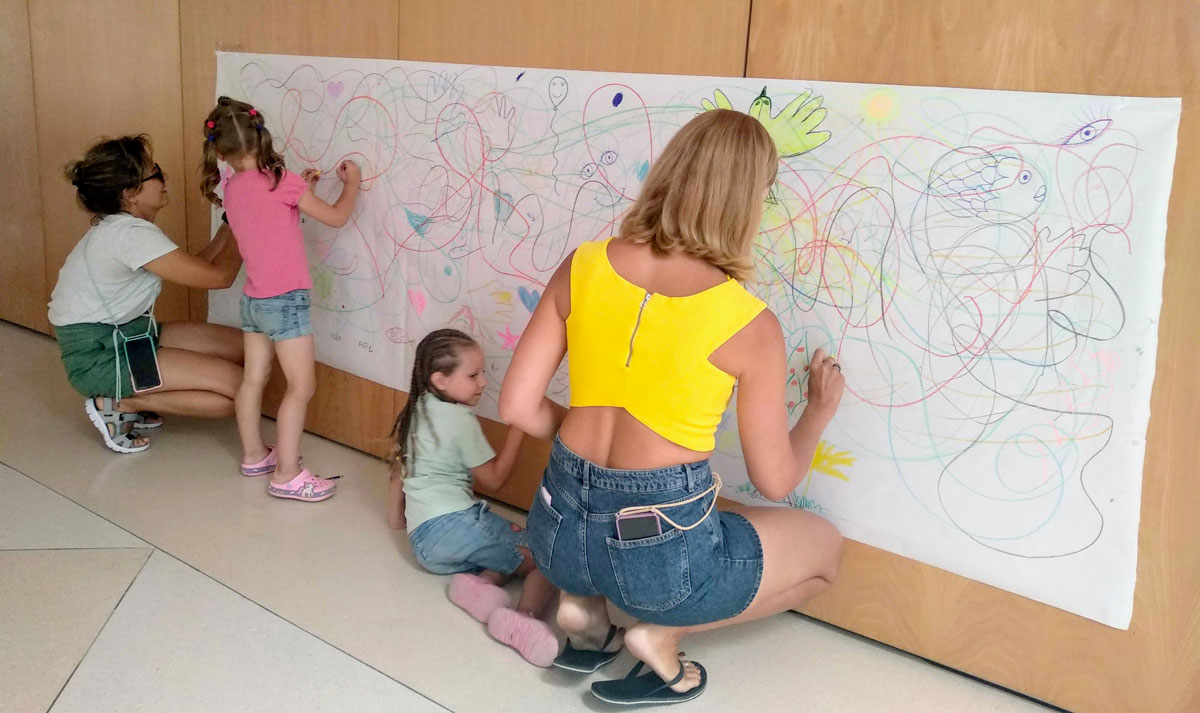For many years now, Spain is the destination of a constant flow of migrant, refugee, and asylum seekers arrivals, mostly Single Men, coming from Africa (especially from Morocco and Algeria) and Latin America. In 2017 there was a significant increase in number of arrivals, confirmed in the following years and mostly in 2018 when the Western Mediterranean route (Strait of Gibraltar) has become the main Maritime route taken to reach Europe, with 184’567 arrivals between 2006 and 2021, according to the latest data from the Ministerio del Interior (December 2022).
Since February 24th, 2022, this unceasing flow of people on the move trying to reach Europe, and with it a future of freedom, emancipation, and dignity, overlapped with the rapid and unprecedented arrival, by land, of refugees, mostly women (64%) and children under the age of 18 (33%), fleeing the war in Ukraine. According to the latest statistics from the Ministerio de inclusión, seguridad social y migraciones (December 2022), there have been a total of 11’390 arrivals in the city of Málaga (CC.AA de Andalucía) and 86’625 throughout the country. To cope with the fast and significant arrival of Ukrainian refugees, the reception system has been strengthened nationwide with the opening of new C.A.R. (Centros de Acogida a Refugiados), 60% of which are managed by The Spanish Red Cross, Málaga becoming the fourth city by number of new arrivals, after Alicante, Barcelona, and Madrid.
Deeply impacted, on a psychological, emotional, and psychosocial level, by their different migration journeys and trauma/violence suffered along the way, people on the move, and especially minors and UMA, experience what is defined in clinical terms as a “Migratory Grief”. Grieving is a psychological phenomenon caused from the loss, both physical, like losing a loved one, and symbolic, such as the loss of one’s country of origin, economic and social status, social relationships, and oneself, which forces adaptation to a new space-time reality and entails redefining one’s identity. Continuously confronted with stressful situations, people on the move develop, in most cases, what is defined as the Ulysses Syndrome (Immigrant Syndrome of Chronic and Multiple Stress), which manifests itself through a range of symptoms such as depression, anxiety, dissociative and somatoform disorders, and, at the same time, need to work on their own emotions and develop coping strategies to adapt to the new reality, made up of losses, and create, from scratch, a new relational and social network. In such circumstances, art therapy, in line with the findings of the existing scientific literature in this regard, has proven to be a complementary practice to other strategies for psychosocial care since, in its metalanguage function, allows people with a migration background, and in primis minors, to start a rehabilitative post-traumatic process of empowerment and resilience.
All the details on the project and its implementation phases are available in PDF format by clicking HERE
Successfully implemented since 2020, the Art Therapy Program in migration contexts in Málaga (Spain) and health distress in Lebanon and Egypt has contributed to:
THE PROGRAM IN FIGURES (2020-2022)
“Often, good things come out of adversity, and partnering with The Red Pencil is a perfect example of it. The stress from the situation in Lebanon, added to the Covid-related pandemic, and the Beirut port explosion would have been too much for anyone. Through our sessions, I discovered that self-care is essential and that feeling guilty is normal. I am trying to apply the idiom: “You cannot pour from an empty cup”. I am eternally grateful for the support and care I found within this amazing group of women”.
“I experienced positive changes after applying the tools and guidelines shared with us during art-therapy sessions. It made an impact on me”. “The sessions were very cool. They also helped release a lot of negative energy and pressure”. “It gave us hope and peace.”
“Good. I’ve felt like I could express everything freely. Express everything like that, without hiding”; “The difference is that in normal art class I can’t express my feelings like that, so directly. Here I can do it however I want…it’s like nothing comes out of these walls, like what is said here stays here”.
“I would definitely say both the overall and specific objectives were met. This is confirmed by participants’ feedback at interview where they expressed that the sessions had given them a space to reflect, to dream and hope and think about the things they wanted to do. Participants expressed that they learned to use their imagination, to cooperate and work as a team. They also felt the physical space was inviting to make art, to imagine, build and try new things. They said Art Therapy gave them courage and confidence and they learned something new every week”.

